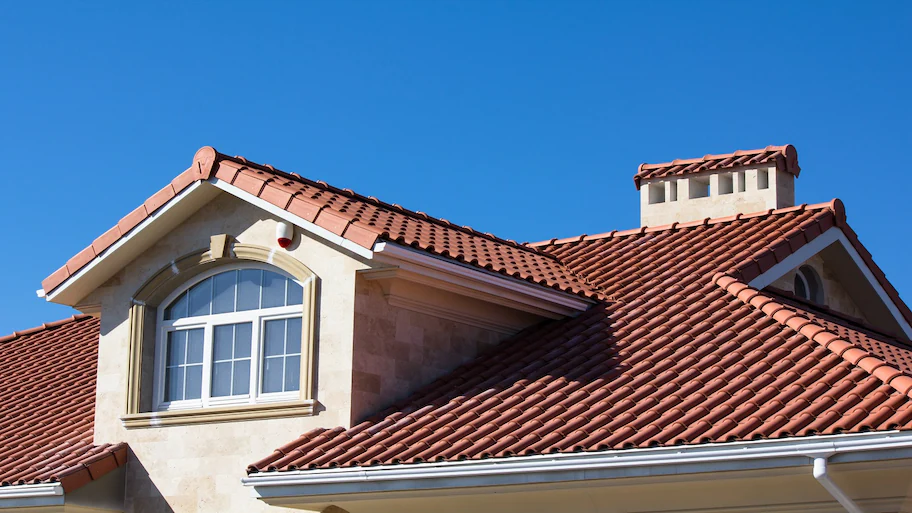
A new roof improves curb appeal, increases home value and keeps your living space protected from the elements. Learn about average roof replacement costs to set your budget.
Installing a metal roof in Philadelphia costs $9,408, on average, with a cost range of $2,200 to $20,000. A pro roofer will account for roof size, pitch, and material options when determining your total.
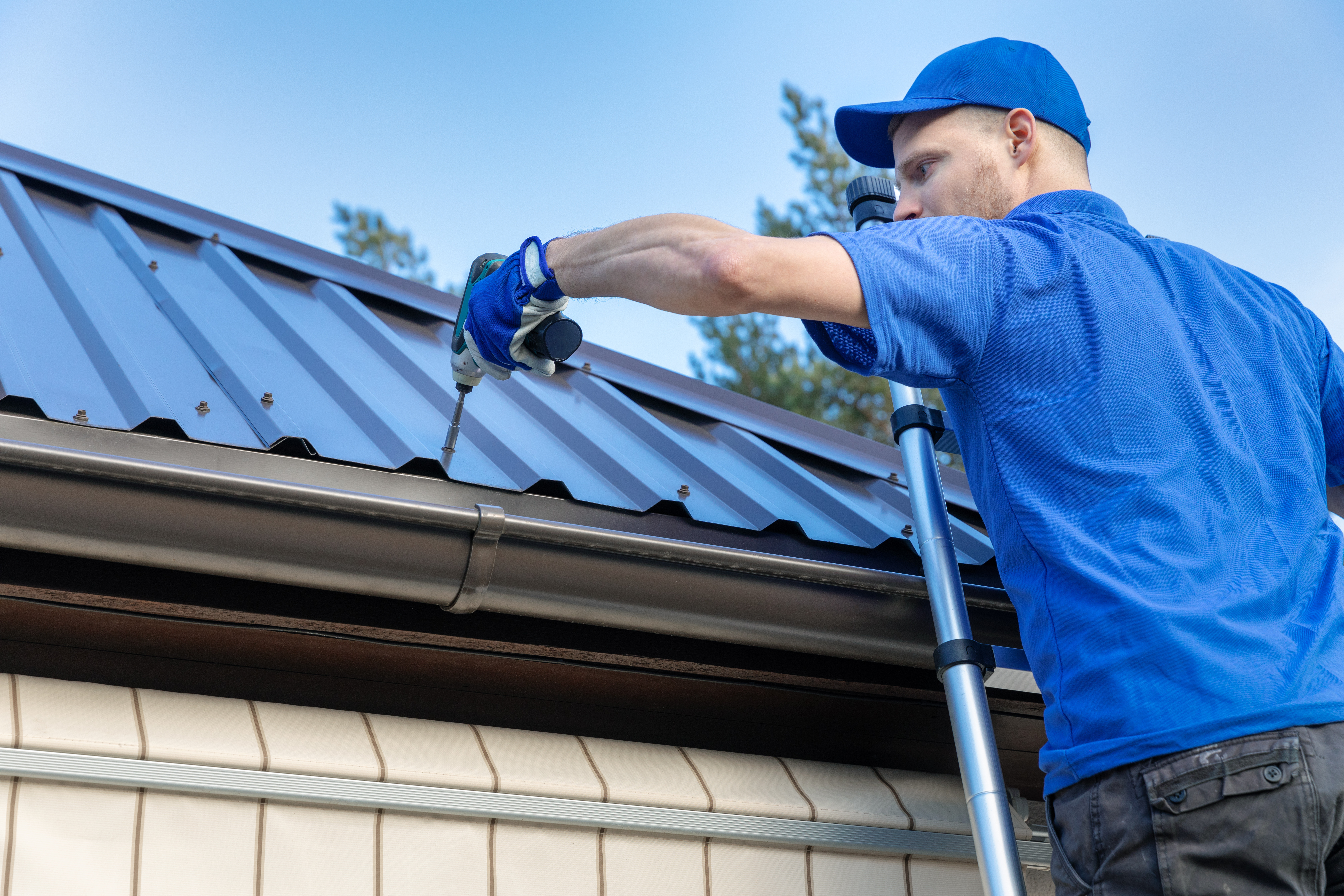

The size and the type of metal roof you choose are the most crucial cost factors to consider.
Metal roof installation costs an average of $11 per square foot but can climb up to $30 per square foot for high-end copper.
Standing seam metal roofing is the best style in Philly, as it has the lowest risk of leaking.
Philadelphia residents see hot summers and cold winters, so consider adding insulation for an additional $1,000.
Metal roof costs in Philadelphia average {AvgCost}, and most projects total between $2,200 and $20,000. The size of the area you’re covering with metal roofing and the type of metal you choose will affect your pricing more than any other factor. Given the wide temperature swings in the city, it’s a good idea to budget an additional $1,000 to add rigid foam insulation under your new roof to reduce heating and cooling costs.
Installing a metal roof in Philly can cost as little as $4,916, and prices can climb as high as $14,164 for the typical roofing project. There are a few factors that determine where your total will fall within that range.
Professional metal roofers will measure your roof slopes and then charge based on the square footage, so the size of the area you’re re-roofing is the most impactful cost factor to consider. You’ll pay an average of $11 per square foot for materials and labor to install a metal roof.
For a 1,345 square foot home in Philadelphia, you’ll need around 1,500 square feet of roofing, putting the average for a total roof replacement at $16,500. It’s common in Philly for homeowners to use metal as an accent material during a partial roof replacement, so your costs will sit much lower if that’s your plan.
| Roof Size (Sq. Ft.) | Average Cost |
|---|---|
| 100 | $1,100 |
| 250 | $2,750 |
| 500 | $5,500 |
| 1,000 | $11,000 |
| 1,500 | $16,500 |
| 2,000 | $22,000 |
The design of your roof can also complicate the installation and push labor costs higher. Most roofs in Philly are simple gable roofs, but if you have a hip roof, a cross gable, or another style, you can expect your price to be up to $2,000 above the local average.
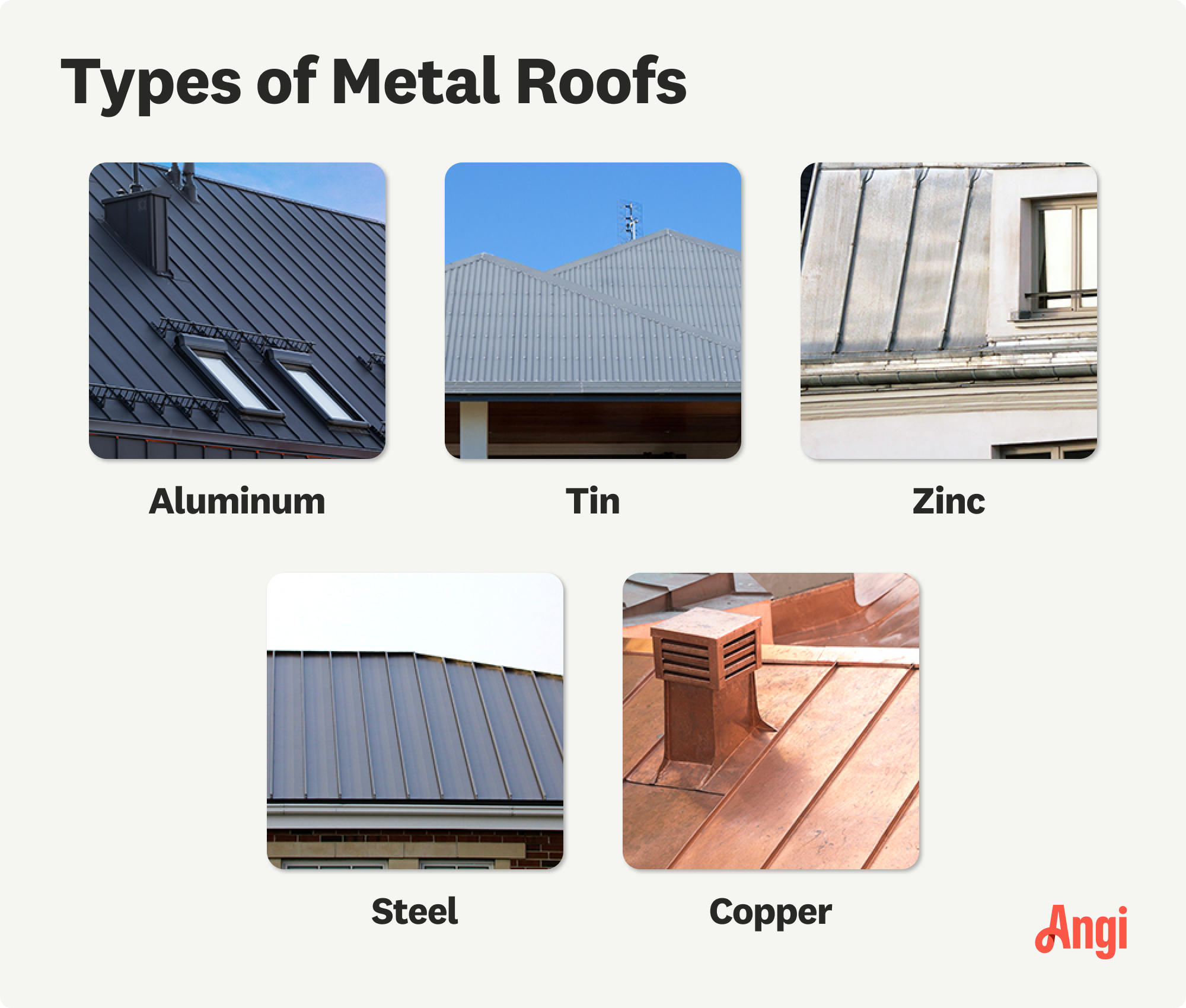
Coated steel is the most common type of metal for residential roofs, and the material costs $11 per square foot, on average, to install. You can go with aluminum or tin for a lower up-front cost at the expense of a shorter roof lifespan.
Copper is a luxury option that maximizes the beauty of your home, and it stands up the best against the wide temperature fluctuations in Philadelphia, but it’s also the most expensive. Zinc costs a bit less than steel and is a more unique material that develops a beautiful patina like copper, but it can be challenging to source.
| Type of Metal | Cost (per Sq. Ft.) | Pros | Cons |
|---|---|---|---|
| Aluminum | $4–$11 | Up-front cost | Shorter lifespan |
| Copper | $15–$30 | Luxurious look | Expensive |
| Steel | $6–$16 | Value | Can rust if damaged |
| Tin | $5–$12 | Up-front cost | Prone to rust |
| Zinc | $6–$12 | Appearance | Availability |
Standing seam metal roofs are the popular option in Philadelphia, largely because they offer great curb appeal and stand up better than metal shingles to the above-average rainfall in the city. Standing seam roofs have fewer seals that can fail, so they’re less likely to leak. Metal shingles are less expensive but are more prone to leaking, and corrugated metal is the most affordable but doesn’t provide the same high-end curb appeal that the other options do.
| Roof Style | Cost (per Sq. Ft.) |
|---|---|
| Corrugated | $3.50–$16 |
| Metal shingles | $7–$22 |
| Standing seam | $7–$30 |
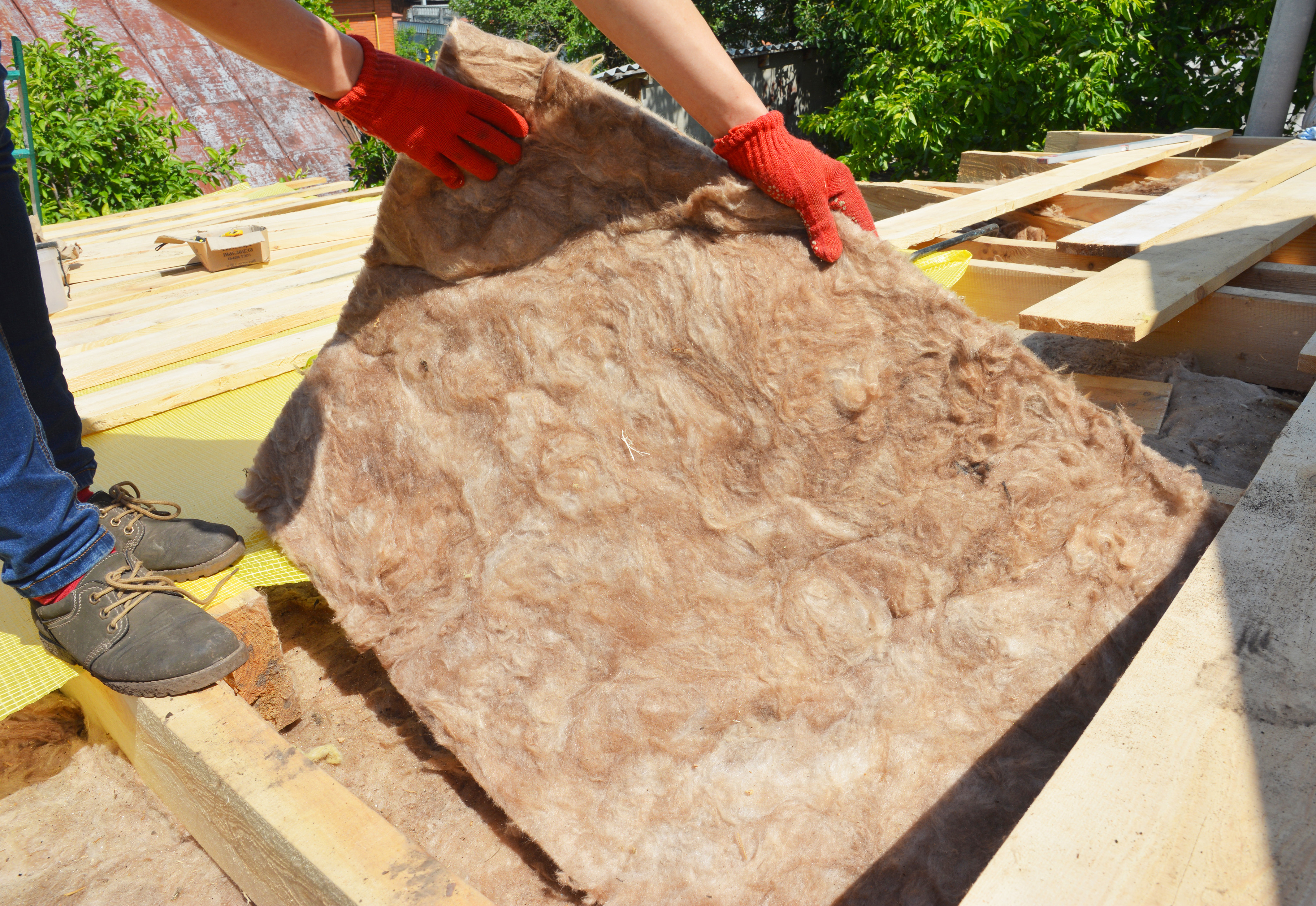
Philadelphia experiences hot, sunny summers with average temperatures reaching into the high 80s, as well as cold winters dipping down below freezing. Metal roofing will help keep your home cool in the hot, humid summers because it reflects sunlight away from your home.
However, it offers less insulation than asphalt shingles and most other roof materials. It’s a good idea to budget extra to install insulation under your roofing, which costs an average of $1,000. This add-on service will help reduce heating costs in the cold winters and will also contribute to improved energy efficiency in the hot summers.
The labor to install a metal roof in Philadelphia costs an average of $4,700. This is much lower than the national average because more homeowners use metal solely for partial roof replacement. Still, it’s more than 14% higher on a per-square-foot basis due to the above-average cost of living in the city.
Roofers in Philadelphia will pull the necessary building permits for your project, but they’ll pass on the permitting fees to you. The City of Philadelphia has some of the lowest roofing permits in the country, with permits costing just $50 for roof replacement for roofs under 4,000 square feet. For an oversized home, you’ll also pay an additional $3 per 100 square feet of roofing above that initial 4,000 square feet.
A metal roof will increase your home value because it improves your home’s curb appeal and helps ensure buyers that they won’t be on the hook for roof repairs or water damage from leaks following the closing. The national average return on investment (ROI) for metal roof installation is 50%, but you’ll likely see a higher return in Philadelphia. Not only can metal roofs improve your home’s energy efficiency, but they also stand up better to the above-average annual rainfall and reduce the risk of roof leaks down the road.
Metal shingle roofing has reflective pigments to act as radiant barriers, and their shape creates an air gap or thermal break between the metal and the roof deck, stopping conductive heat transfer, making them great for summer efficiency.
Home is the most important place on earth, which is why Angi has helped more than 150 million homeowners transform their houses into homes they adore. To help homeowners with their next project, Angi provides readers with the most accurate cost data and upholds strict editorial standards. We survey real Angi customers about their project costs to develop the pricing data you see, so you can make the best decisions for you and your home. We pair this data with research from reputable sources, including the U.S. Bureau of Labor Statistics, academic journals, market studies, and interviews with industry experts—all to ensure our prices reflect real-world projects.
Want to help us improve our cost data? Send us a recent project quote to [email protected]. Quotes and personal information will not be shared publicly.
From average costs to expert advice, get all the answers you need to get your job done.

A new roof improves curb appeal, increases home value and keeps your living space protected from the elements. Learn about average roof replacement costs to set your budget.

Looking to boost your home’s curb appeal and protect it from water and rodents? Learn about the cost to install aluminum soffits and what affects pricing.

Patio or deck roof costs depend on your square footage and roofing material. Learn why this project can add considerable value to your home.
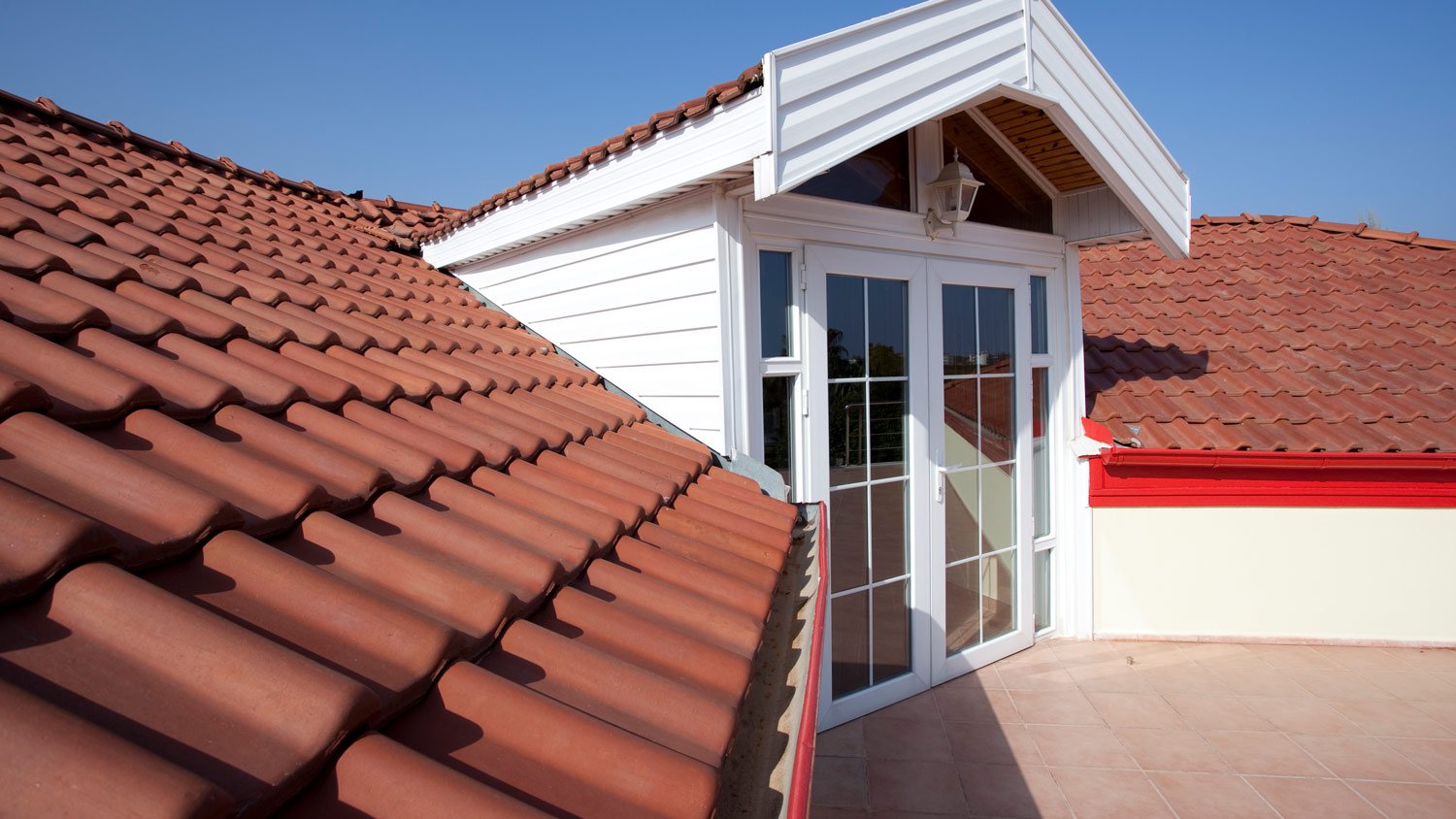
If you’re upgrading your roof with stone-coated steel, you should be aware of the total project cost. Learn what will impact your final stone-coated steel roofing costs.

Understanding roof rafter sizes is critical to ensure your project is structurally sound and up to code. Learn about sizes, spacing, and code requirements.

What's a cupola? Is it possible to have one on my home? What do they look like? Learn all about the variety of cupolas you can add to your home or barn.